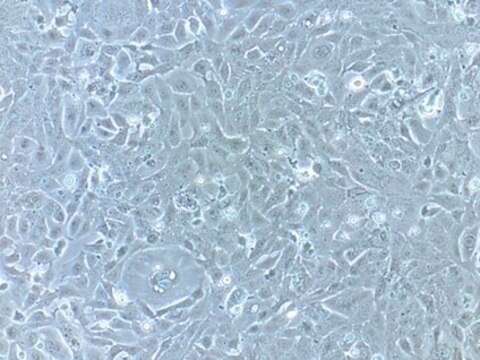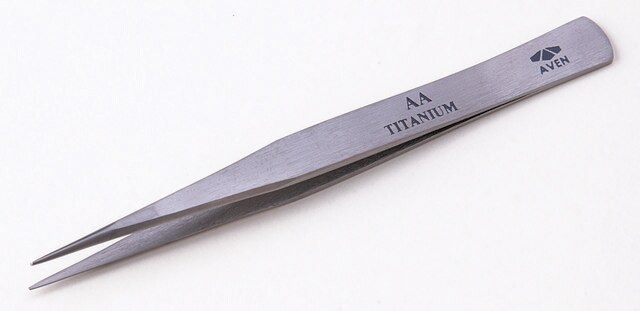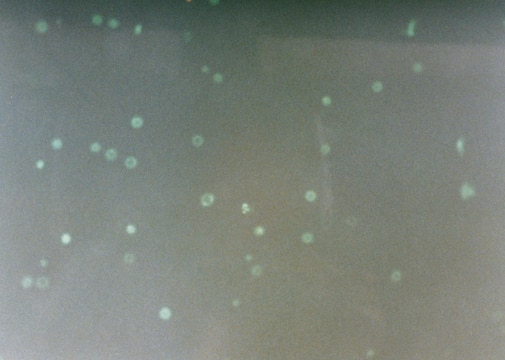ES-R1-ECFP CK8/ECFP
07072005, mouse embryo. Monolayer of spheroidal cells on feeder layer of PMEFs.
Synonym(e):
CK8/ECFP, ES-R 1, ES-R-1, ESR-1, ESR1
About This Item
Empfohlene Produkte
Produktbezeichnung
ES-R1-ECFP CK8/ECFP, 07072005
Biologische Quelle
mouse embryo
Wachstumsmodus
Adherent
Karyotyp
Not specified
Morphologie
Adherent monolayer of spheroidal cells on feeder layer of mouse primary embryonic fibroblasts
Produkte
Not specified
Rezeptoren
Not specified
Methode(n)
cell culture | mammalian: suitable
Versandbedingung
dry ice
Suchen Sie nach ähnlichen Produkten? Aufrufen Leitfaden zum Produktvergleich
Ursprung der Zelllinie
Beschreibung der Zelllinie
Nährmedium
Subkultur-Routine
Porcine gelatine (Sigma product number G1890) is dissolved in sterile water (0.5 g/500ml) at 56 °C. The 0.1% solution is sterilized by filtration (0.22 μm). Add 0.1% gelatine to plastic ware to cover bottom, and incubate for 20 minutes at room temperature (RT). Remove gelatine, wash with PBS once and replace with appropriate culture medium. The flask/dish must not be allowed to dry out.
Feeder layers are prepared on the gelatinized flasks at least 24 hours in advance of being required. An ampoule is thawed in 37 °C water bath and the contents quickly transferred to a 15 ml centrifuge tube. MEF medium is added drop wise to 5 ml. Cells are centrifuged at 150 x g for 5 minutes at RT. Cells are resuspended in 5 ml of MEF medium. Cells are counted and added to flasks containing the correct medium at 1-3 x 104 cells/cm2.
An ampoule of ES cells is thawed in 37 °C water bath and the contents quickly transferred to a 15 ml centrifuge tube. KSR medium is added drop wise to 5 ml. Cells are centrifuged at 150 x g for 5 minutes. Cells are resuspended in 5 ml of KSR medium. The prepared feeder flask is washed once with PBS and KSR medium added. ES cells should be plated at 4-5 x 104 cells/cm2. Cultures must be incubated in a humidified 5% CO2/95% air incubator at 37 °C. A 100% media change must be performed every day and cells passaged every 2-3 days. Colonies must not be allowed to touch each other as overgrowth will result in differentiation.
Sonstige Hinweise
Haftungsausschluss
Hier finden Sie alle aktuellen Versionen:
Analysenzertifikate (COA)
Leider sind derzeit keine COAs für dieses Produkt online verfügbar.
Wenn Sie Hilfe benötigen, wenden Sie sich bitte an Kundensupport
Besitzen Sie dieses Produkt bereits?
In der Dokumentenbibliothek finden Sie die Dokumentation zu den Produkten, die Sie kürzlich erworben haben.
Unser Team von Wissenschaftlern verfügt über Erfahrung in allen Forschungsbereichen einschließlich Life Science, Materialwissenschaften, chemischer Synthese, Chromatographie, Analytik und vielen mehr..
Setzen Sie sich mit dem technischen Dienst in Verbindung.







